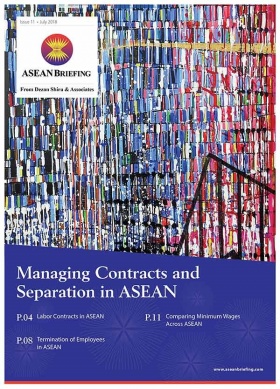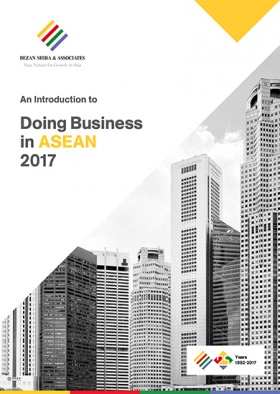Payroll Outsourcing in Singapore: Allowing Companies to Focus on Regional Expansion in ASEAN
Although managing payroll in Singapore is a relatively less complex process than elsewhere in ASEAN, it is not without its inherent challenges given the city-state’s constantly evolving regulatory environment. While Singapore-based companies may find it challenging to keep track of the country’s changing social security, tax, and regulatory norms when computing payroll for its employees, those with operations in the wider ASEAN region are likely to find the task even more daunting.
When a company operates in multiple countries, its internal HR teams often struggle to stay updated with changing payroll regulations. Indeed, payroll regulations in emerging markets can change quickly and without proper notification. HR staff doing payroll without up-to-date information may, inadvertently, lead to issues of non-compliance. Non-compliance, even accidental, can invite unwanted scrutiny from authorities, heavy fines, and may negatively impact the morale of employees adversely affected.
Under such circumstances, it is advisable that Singapore-based companies, including those with operations in the wider ASEAN region, outsource their payroll management to a professional payroll processor. Individual HR employees can learn and monitor regulatory changes in Singapore and across ASEAN states. However, if that individual is absent or switches jobs, the company effectively loses its knowledge of payroll regulations in the country and across ASEAN.
Choosing a Singapore-based third-party payroll service provider will ensure continuity in payroll processing as regulatory knowledge is institutional and not dependent on individuals.
Who should outsource payroll processing?
- New market entrants who are unfamiliar with local labor regulations in Singapore and the wider ASEAN region;
- SMEs with limited budgets for an independent internal HR department;
- SMEs that desire access to advanced payroll automation software without incurring the related costs; and,
- Rapidly expanding companies that need to manage limited time and resources while concentrating on core business goals.
Why should you outsource payroll processing?
- Improved compliance: Outsourcing payroll processing improves a firm’s compliance and oversight record, and therefore limits associated risks. Professional payroll service providers have dedicated staff that specialize in monitoring the latest updates in rules and regulations at the local, state, national, regional, and industry levels, as well as changes in the withholding tax rates. They calculate social insurance deductions, manage filings and payments, and will undertake the cost of penalties due to incorrect calculations, under-reporting, or delayed payments so long as accurate personnel information and funds are provided on time.
- Streamlined HR: An internal payroll division involves staffing concerns and running costs, but firms outsourcing payroll can streamline their internal human resources department to focus on managing the company’s relationship with its employees and strategic issues.
- Confidentiality and transparency: The more employees aware of salary details in an organization, the greater the risk that such information becomes public knowledge within the company. Outsourcing payroll ensures that sensitive data stays secure, and only key decision-makers and senior personnel in the firm are aware of the payroll details. At the same time, outsourcing increases transparency in the payroll process – errors can be reported immediately and directly to management without the complications of inter-departmental reporting structures.
- Mediate Cultural Issues: Cultural barriers can lead to miscommunication when collecting data from diverse workforces. Good payroll processing maintains confidentiality – even among a company’s own workforce – and cultural miscommunication can compromise that privacy. Multinational companies with operations in different countries in ASEAN can face work-issues and incomplete data when internal HR staff overlook nuanced cultural differences. Given Singapore’s unique history, the city-state is well suited to act as a cultural mediator between ASEAN states and foreign companies. When collecting, processing, and explaining payroll data, Singapore-based third party operators can understand the nuances in cultural differences and act accordingly – thus minimizing the risk of miscommunications.
Choosing the right service provider
Given ASEAN’s complex tax and labor regulations, only payroll processors with capabilities and experience of operating across several jurisdictions in the region can provide reliable services.
It is advisable that companies looking to outsource payroll conduct professional due diligence into a potential payroll partner to ensure it has compatible resources to run payroll processing that are customized to their needs.Payroll management has taken on an expanded functionality today, offering client firms an array of services while ensuring the efficient distribution and management of payroll, maintaining compliance, and securing confidentiality of payroll data. In recent years, firms specializing in payroll outsourcing invest in advanced software that enables them to produce reports according to the exact specifications required by the tax authorities and banks. Small firms or companies outsourcing their payroll functions benefit from access to this human resource information system as well, and without incurring any of the direct costs.
Thus, even though payroll outsourcing incurs an overhead expense to the firm, it effectively reduces their overall liabilities and costs, and ensures that more time and resources get spent on critical business functions instead, including the consolidation of their ASEAN expansion.
|
This article is an excerpt from the June 2017 issu |
About Us
ASEAN Briefing is published by Asia Briefing, a subsidiary of Dezan Shira & Associates. We produce material for foreign investors throughout Asia, including China, India, Indonesia, Russia, the Silk Road & Vietnam. For editorial matters please contact us here and for a complimentary subscription to our products, please click here.
Dezan Shira & Associates provide business intelligence, due diligence, legal, tax and advisory services throughout the ASEAN and Asia. We maintain offices in Singapore, as well as Hanoi & Ho Chi Minh City, and maintain Alliance offices in Bangkok, Jakarta, Kuala Lumpur and Manila as well as throughout China, South-East Asia, India and Russia. For assistance with ASEAN investments into any of the featured countries, please contact us at asean@dezshira.com or visit us at www.dezshira.com
- Previous Article Investing in Cambodia’s Phnom Penh
- Next Article Malaysia’s 2018 Budget: Salient Features









